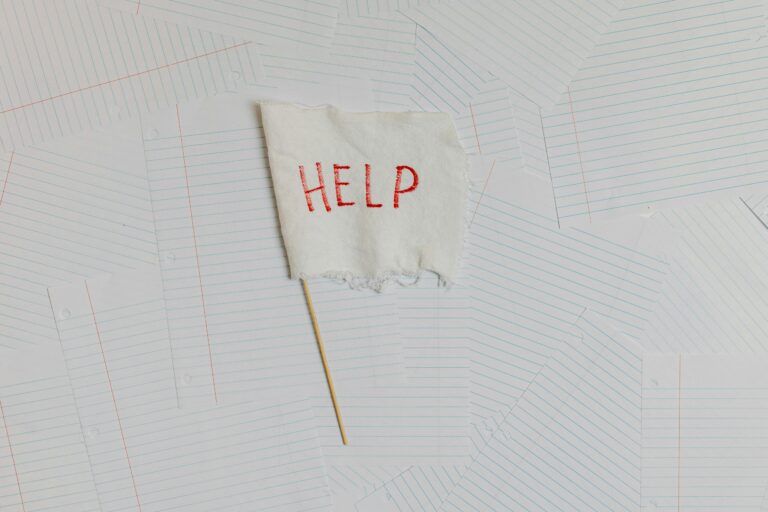How to Develop Emotional Resilience in Times of Uncertainty
Uncertainty is like that uninvited guest who shows up at a party, drinks all your soda, and refuses to leave. Whether it’s a global pandemic, economic downturns, or even personal upheavals, we all face unexpected challenges that can shake our emotional foundations. But fear not! Emotional resilience is like your trusty umbrella on a rainy day; it may not stop the storm, but it will definitely keep you dry. So let’s dive into the art of developing emotional resilience when the going gets tough.
Understanding Emotional Resilience
Before we explore how to cultivate this invaluable trait, let’s break down what emotional resilience actually means. It’s not about being a stoic statue or pretending that everything is sunshine and rainbows when life throws you curveballs. Emotional resilience is your ability to bounce back from adversity, adapt to change, and keep moving forward despite the chaos around you.
Think of it as your mental gym. Just like lifting weights strengthens your muscles, building emotional resilience strengthens your ability to cope with stress. The best part? You don’t need a fancy gym membership or a personal trainer—just a willingness to engage in some self-care and growth.
Strategies for Building Emotional Resilience
1. Acknowledge Your Feelings
First things first: allow yourself to feel. Denying your emotions is like trying to hold a beach ball underwater; it’s exhausting and ultimately unsustainable. Whether you’re feeling anxious, sad, or downright confused, acknowledge those feelings. Journaling can be a powerful tool here. Write down your thoughts, fears, and even your hopes. You’ll be surprised at how clarifying it can be to see your feelings on paper.
2. Cultivate a Support Network
Human beings are social creatures, and we thrive when we’re connected to others. Surround yourself with supportive friends and family who uplift you. This doesn’t mean you need a massive entourage. Even a couple of close confidants can make a world of difference. And remember, it’s a two-way street; be there for others, and you’ll likely find that support comes back around when you need it most.
3. Practice Mindfulness and Meditation
Think of mindfulness as a mental reset button. It helps you stay grounded and present, even when your mind is racing with “what ifs.” Regular meditation can improve your emotional regulation and enhance your resilience. Start small—just five minutes a day of focused breathing or guided meditation can set the stage for clearer thinking and emotional stability. Apps like Headspace or Calm can be great starting points if you’re unsure where to begin.
4. Embrace Flexibility
Life is unpredictable, and the ability to adapt is crucial for emotional resilience. If you find yourself clinging too tightly to plans or expectations, it might be time to loosen the grip. Think of it like driving your car in the rain; you need to adjust your speed and direction based on the conditions. Being flexible allows you to navigate the twists and turns of life without losing your cool.
5. Set Realistic Goals
When faced with uncertainty, it’s easy to feel overwhelmed. Break your challenges down into manageable goals. Instead of saying, “I need to fix my entire life,” try setting smaller, achievable objectives like, “I’ll apply for one new job this week” or “I’ll take 15 minutes each day to unwind.” Celebrate those small victories—they add up and help maintain your motivation!
6. Focus on What You Can Control
In times of uncertainty, it’s easy to fixate on what’s beyond our control. Instead, shift your focus to the aspects of your life you can influence. Perhaps you can’t change the economy, but you can control how you respond to it. Take proactive steps to improve your situation, whether that’s learning a new skill, networking, or simply practicing self-care. Empowering yourself can enhance your resilience and boost your confidence.
Fostering a Positive Mindset
7. Practice Gratitude
Gratitude is like a secret weapon against negativity. Each day, take a moment to reflect on what you’re thankful for, no matter how small. Maybe it’s your morning coffee or a text from a friend. Cultivating gratitude helps shift your focus from what’s lacking to what’s abundant in your life. Consider starting a gratitude journal, where you jot down three things you appreciate each day. It’s a great way to end your day on a positive note!
8. Engage in Activities That Bring You Joy
Don’t underestimate the power of joy! Engage in activities that make you feel alive, whether it’s painting, hiking, or binge-watching your favorite show (no judgment here!). These joyful moments can serve as a buffer against stress and help you recharge. Remember, laughter really is the best medicine; don’t hesitate to indulge in a good comedy or share a laugh with friends.
9. Seek Professional Help When Needed
Sometimes, building emotional resilience requires a little extra help. There’s no shame in seeking the guidance of a mental health professional. Therapists can provide you with tools tailored to your unique situation, helping you build the resilience you need to face challenges head-on. It’s like having a personal trainer for your emotional well-being—who wouldn’t want that?
Final Thoughts
Developing emotional resilience is a journey, not a race. It takes time, effort, and a sprinkle of self-compassion. Remember, even on your toughest days, every step you take towards resilience is a victory. So, embrace the uncertainty, lean on your support system, and keep nurturing your emotional well-being. After all, life may be unpredictable, but your response to it doesn’t have to be!


